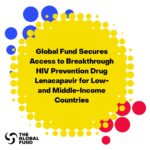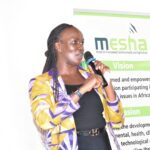By Ellen Msungu I info@meshascience.org
The nightmare that is COVID-19 has undoubtedly shaken the world. For persons with disabilities, they have remained invisible.
Ms. Angeline Akai echoes these sentiments. She is a visually impaired person who, until the pandemic showed up, was working as a consultant sensitizing people on the plight of persons with disabilities.
Today, she sits at home with his nephew, jobless. According to the government, she is not an essential service provider and therefore has to work from home, but, no client comes to her at home.
Everyone is skeptical, and, like the Ministry of Health advised, “you should treat everyone as a suspect of COVID-19, hence the need for social distancing.”
For more than three months now, she has not been receiving clients. Her income is no more and her savings are depleting as time goes by.
“I do not like asking for help from friends, but I am afraid I’m now relying on friends, which, I feel is a threat to my dignity,” says Ms. Akai. The government released funds to help the vulnerable but speaking to some of the people with disabilities, they said that they are yet to receive any assistance.
“I have asked my area chief if he has heard of any registration that is ongoing for people like us, but he told me he is not aware of any of such,” says Ms. Akai. If she were to go out, as usual, she will need aid to walk her through the streets of Nairobi, and, her nephew is not one of the options because he is still young. Her vulnerability to unknowingly coming into contact with persons with the coronavirus is high. Ms. Akai is not alone.
Catherine Syokau is a Communication Officer, with a physical disability. Her story is quite different. Unlike Ms. Akai, she still goes to work, but only thrice or twice a week. That means that her productivity, like most Kenyans, has reduced.
“Working from home is a challenge for me, I do not have internet connection so there are some duties that I cannot perform from home,” says Syokau. Her routine when going to work is still the same, only that this time, she has to have a hand sanitizer all the time just to be safe.
At the bus station though, as it has always been for her, she is helped to board the bus to and from work. She, therefore, is at risk of getting too close to people whose viral status, she may not know. She is forced to sanitize her wheelchair so many times as recommended by public health officials. The Nairobi Metropolis put up water points for people to wash their hands while in town as one of the ways of containing the virus.
One thing that unfortunately did not cross their minds, is that people like Ms. Syokau are not privileged to use taps that high. “I cannot wash my hands in town, I only sanitize. What about my fellow vulnerable people who cannot afford sanitizers?” she asks.
Tom Ndede, who works with persons with disabilities, feels that the “hearing impaired are the most neglected people during the ongoing relief items distributions compared to other persons with disabilities.”
Delving deep into the issue, you will understand why that is his intuition and he says the main barrier is communication. Whilst the Ministry of Health briefing could have a sign language interpreter, not everyone has the luxury to watch that, and on radio, communicating to a person with hearing impairment is impossible. They are left out when crucial decisions regarding the pandemic like the curfew are made.
“Sometime back, a young man who is deaf in Kakamega who had not heard about the curfew was beaten up by police because they did not understand his situation,” says Mr. Ndede.
That did not sit well with the members of the deaf community. Their appeal to the chair of the National COVID-19 response team, therefore, is to highlight some of the challenges facing persons with disabilities during the pandemic.






